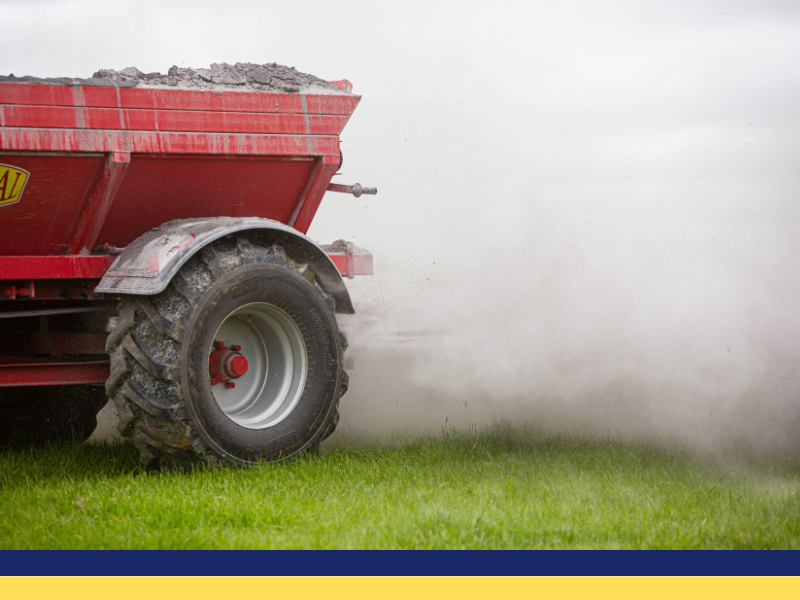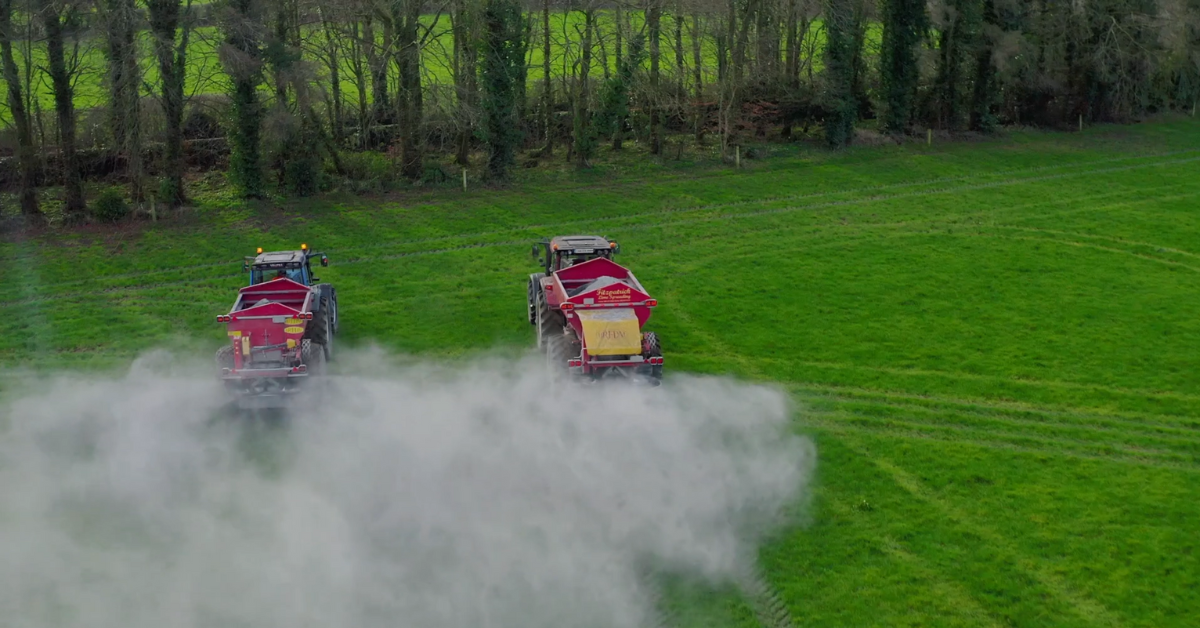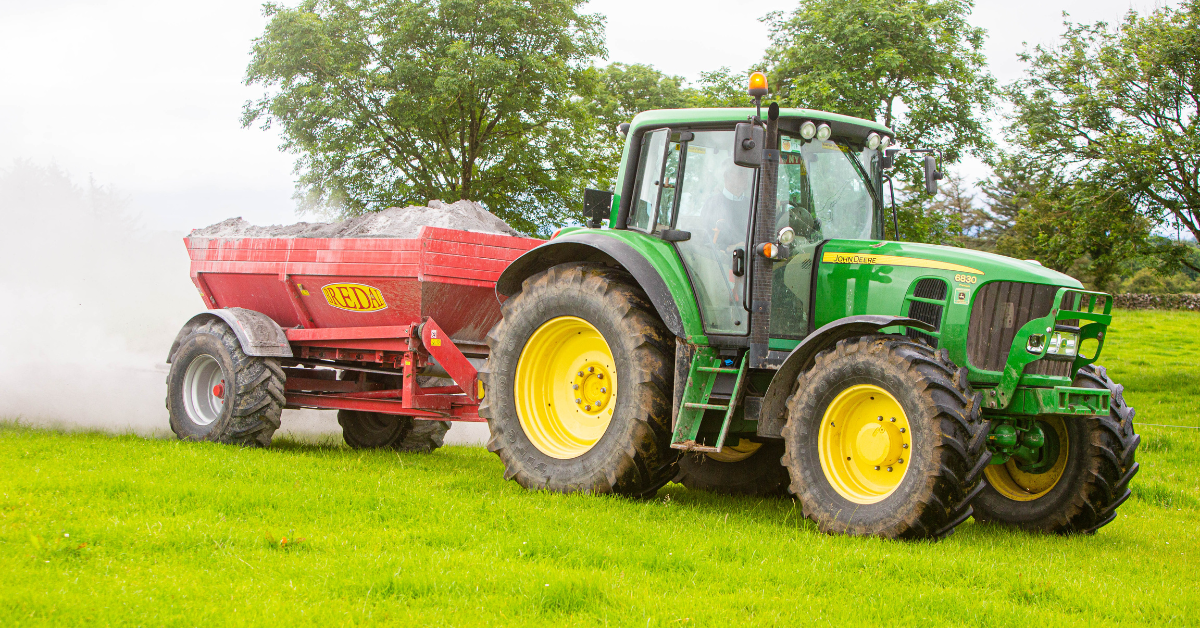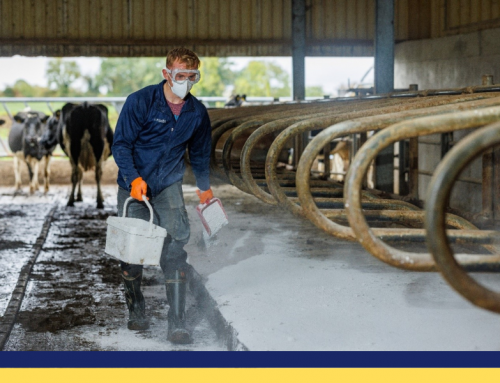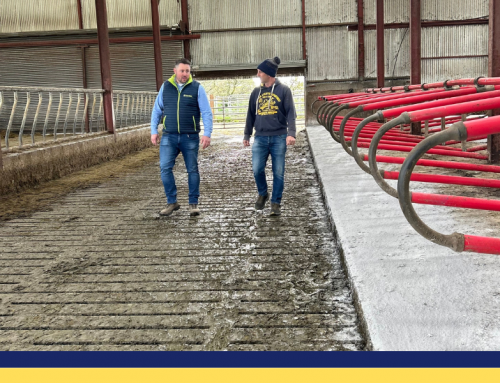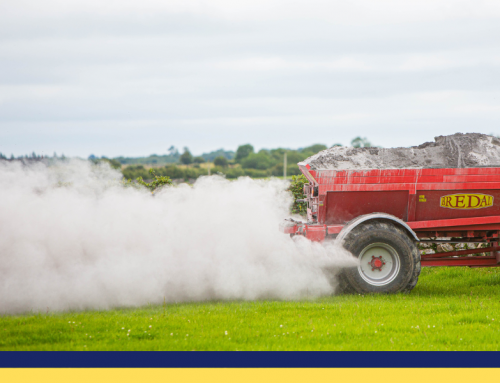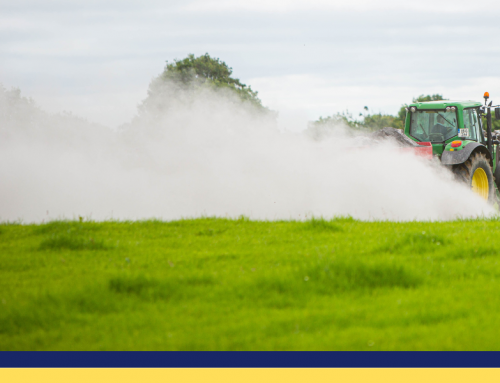Liming Irish soils is very beneficial as our soils tend to be naturally acidic. When soils are acidic, they don’t function properly and will respond below optimum to the fertilisers applied.
In a year of high input costs, soil acidity correction and agri lime application will be key to achieving a maximum response from fertiliser applied. Maintaining soils at the correct soil pH will increase the release of soil N and improve the availability of soil phosphorus (P) and potassium (K) after application.
When liming, it is important to follow the 4 w’s of applying lime to help achieve maximum fertiliser response in the soil.
- What lime to apply?
Both Calcium Lime and Magnesium Lime are excellent at correcting soil acidity. In the South- East, most soils are predominately high in Magnesium and deficient in Calcium. If your soil is deficient in Calcium, this impacts on grassland productivity, and ultimately, animal performance.
Calcium ground limestone is the most common. Its fast acting, it has a rapid pH adjustment, and it improves soil structure and drainage.
Our Hi-Calcium Agri Lime is comprised of 98% Calcium Carbonate, which is essential to restore the soils lime status to the desired pH for optimum soil fertility and ensure improved soil structure and drainage. The calcium content is also essential for healthy plant and animal growth.
Magnesium (Dolomitic) ground limestone is a good source of magnesium for soils with low levels. Compared to calcium ground limestone, it is slower to react and does not have the same positive effect on soil structure.
Granulated Lime is fine limestone powder reformed into a granule, that is available to the soil immediately. It is recommended to apply as maintenance product where soil pH is in the optimum range.
- When to apply lime?
Lime application is not subject to a farming calendar, however waiting until the end of the year can be risky due to poor weather and un-trafficable soil conditions.
Instead, it is recommended to apply lime in the spring and summer to ground that has been recently grazed or has recently had silage harvested so that covers are low to also reduce the risk of lime residues on the grass. With silage season in full swing, the next few weeks will present ideal spreading conditions.
Don’t forget, if you wish to spread slurry on fields that require lime, apply the slurry first followed by the lime 7 to 10 days later. Spreading slurry after applying lime where there hasn’t been sufficient rainfall to wash away the lime can result in losses of up to 50% of the available N in the slurry.
It is recommended to apply lime in the spring and summer to ground that has been recently grazed or has recently had silage harvested.
- Where to apply lime?
For farmers to recognise the nutrient requirements of their soils, it is important to test soils on a regular basis (every 3 to 5 years) to determine lime requirements.
Lime should only be applied on the basis of a recent soil test report (1 to 3 years old). Typical lime requirements are 2.5 to 5.0 tonnes per ha, every 3-5 years. Apply a maximum of 7.5t/ha (3.0t/ac) in a single application, however on very acidic soils with a high lime requirement, apply 50% now and remainder in 2 years’ time.
- Why apply lime?
Increased grass and grain yields of at least 1.5 t/ha are common when optimum soil pH is achieved. This represents a 7:1 return on investment; €7 in additional grass yield for each €1 invested in lime. Applying agri lime regularly releases up to 80kgs of N/ha/Year and unlocks P and K from organic soil reserves, reducing the need for applied fertilisers.
Earthworms and other soil organisms are sensitive to soil acidity, maintaining a neutral soil pH allows them to thrive and breakdown plant residues, animal manures and release nutrients. Applying agri lime regularly will help condition the soil, which in turn, will improve soil structure and drainage and allow for better root development and nutrient uptake.
FOR MORE INFORMATION:
Bennettsbridge Limestone is a member of GROLIME, Ireland’s only agricultural lime quality assurance scheme. For further liming advice or to learn more about our Hi-Calcium Agri Lime, click here.
Like us on Facebook
Follow us on Twitter

